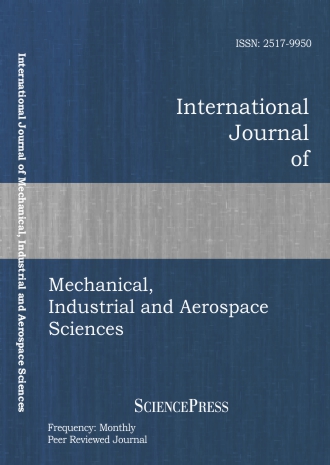
Scholarly
Volume:6, Issue: 3, 2012 Page No: 746 - 749
International Journal of Mechanical, Industrial and Aerospace Sciences
ISSN: 2517-9950
2640 Downloads
Calculating the Efficiency of Steam Boilers Based on Its Most Effecting Factors: A Case Study
This paper is concerned with calculating boiler efficiency as one of the most important types of performance measurements in any steam power plant. That has a key role in determining the overall effectiveness of the whole system within the power station. For this calculation, a Visual-Basic program was developed, and a steam power plant known as El-Khmus power plant, Libya was selected as a case study. The calculation of the boiler efficiency was applied by using heating balance method. The findings showed how the maximum heat energy which produced from the boiler increases the boiler efficiency through increasing the temperature of the feed water, and decreasing the exhaust temperature along with humidity levels of the of fuel used within the boiler.
Authors:
Keywords:
References:
[1] Ahmad Miolhat Salam, Energy and Defend Sources, El-Ahram Centre,